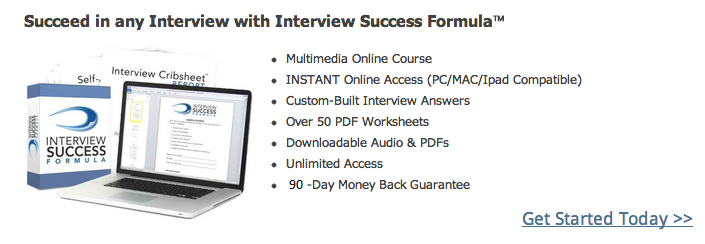 Pushed off your interview preparation until the last minute? Good news. If done right, you can still be in pretty good shape for tomorrow. Here's how to prepare for a job interview in less than 24 hours.
Pushed off your interview preparation until the last minute? Good news. If done right, you can still be in pretty good shape for tomorrow. Here's how to prepare for a job interview in less than 24 hours.
First, a quick word of caution: You should only cram for an interview if you lack other options. With more time, you can do more extensive answer preparation and research.
When the clock is ticking, what should you do first? The following steps are listed in order of importance. Start at the top of the list and then work downwards as you complete each task.
Complete the Interview Basics
Do your logistics. If nothing else, make sure you know the exact address of your destination and the correct contact person for when you get there. Print out and bring with you: three copies of your resume in a folder. Also bring a notepad and a pen. Check your clothes for spots, and do your best to remove them. Press your shirt or blouse.
Sleep. If you've waited until the last minute to prepare for your interview, chances are you've been pretty busy. Sleep is critical to your interview preparation. You may be exhausted, and your mind may not be as sharp as you'd like it to be. Don't walk into the interview as a zombie. Be sure to get a good night's rest. Seven-and-a-half hours is the minimum. Sleep more, if you have the opportunity.
Take the Day to Prepare
If you feel unprepared for the job interview with less than 24 hours to go, take the day off from your job or cancel other plans and get some work done. You may have planned on calling in sick on the day of the actual interview. Your imagined illness just became a little more severe than you had expected. Invest the time you need so you can be successful. Then focus on the critical topics:
Work on your answer to, "Tell me about yourself". This question (or some version of it) is very likely to be the first one you are asked when you walk through the door. You might as well start off the interview on the right foot. Your response to this question should be an elevator pitch. It should last about a minute; then briefly describe your background, what skills you have to offer, and why you are excited about this opportunity. If this question isn't asked at the beginning, you can also close your interview with it.
Research the job and the organization. Know what the organization is about, how it is unique, how large it is, and what people do there. Review the job description so that you'll have some background regarding what the works entails. In this under 24 hour time-frame, consider pulling language from the job description to describe yourself. It's also a good idea to take a last-minute final review.
Prepare for Job Interview Classics
Come up with three reasons why you will do well in this job and three reasons why you are excited to work at this firm. The vast majority of interview questions are trying to assess one of two things: whether you can do the job and whether you fit with the firm.
When you are asked a question such as, "What's your biggest strength?" you are being tested on the first, your ability to perform. Your answer should then include one of the three reasons why you will do well.
When you are asked a question such as, "Where do you see yourself in 5 years?" you are being tested on ambition and on your fit with the firm (the second thing they're trying to assess). Your answer should then include some of the reasons regarding what gets you excited to work at this firm.
As you are asked various job interview questions tomorrow, think about each one in the context of these two areas and the reasons you prepared. Then select one or more responses, as appropriate.
Next on your list, craft and practice three stories that demonstrate your skills and abilities. You want to illustrate how you produce results. Think about the situation, the actions you took, and the results that you produced. Put the stories together in a logical sequence, and include vivid details and numbers to quantify information. If possible, one of these three stories should be the response to a question that asks about a mistake or failure that you faced in the past.
These stories will help you prepare for behavioral questions, which start with, "Tell me about a time when..." You can also use these stories to provide evidence of your skills and abilities, and include these examples in a variety of other answers.
Don't let the rest of your limited time go to waste. Follow this list so you know how to prepare for this job interview.
Good luck tomorrow!
And for another massive time-saving shortcut, take a look at this:


